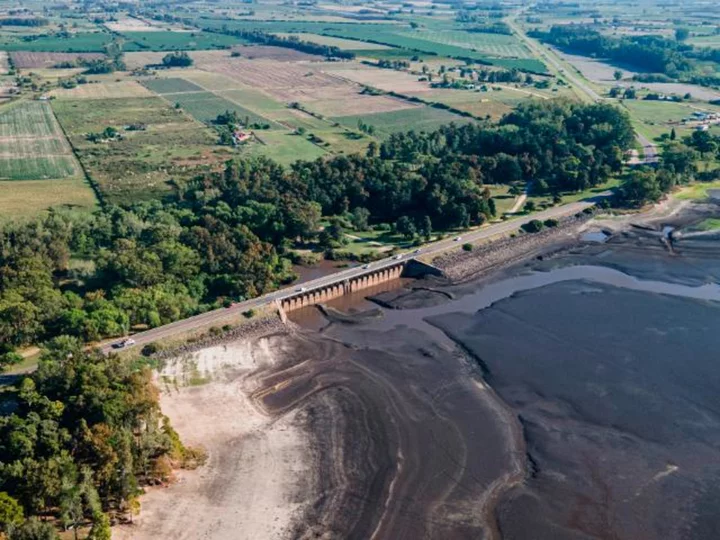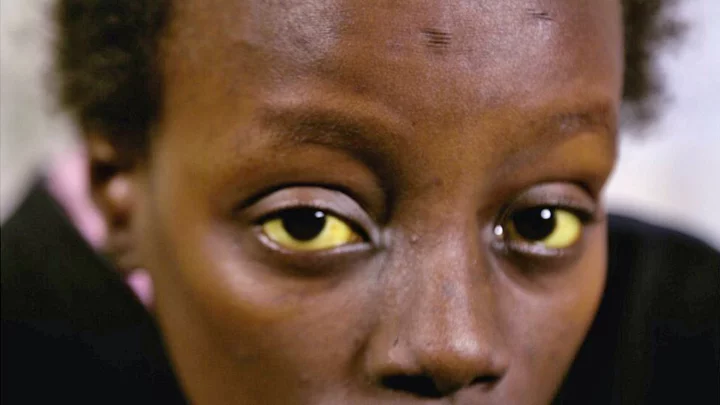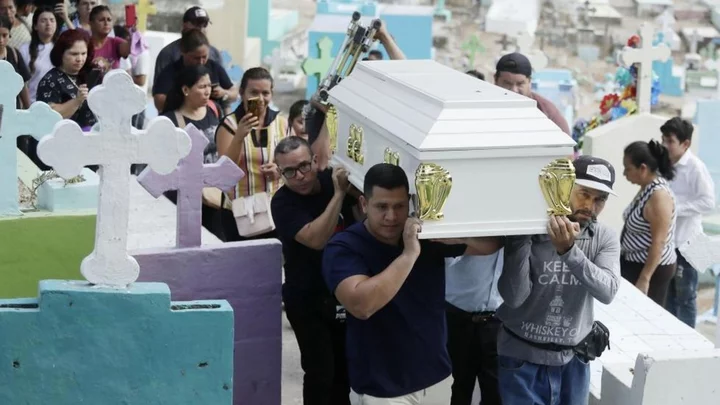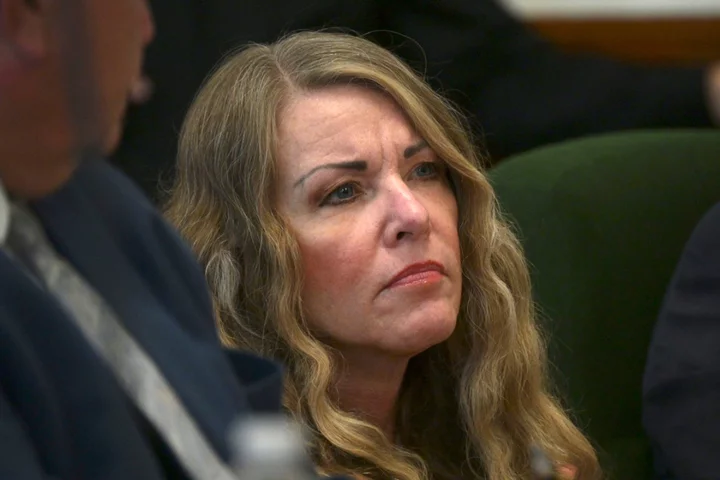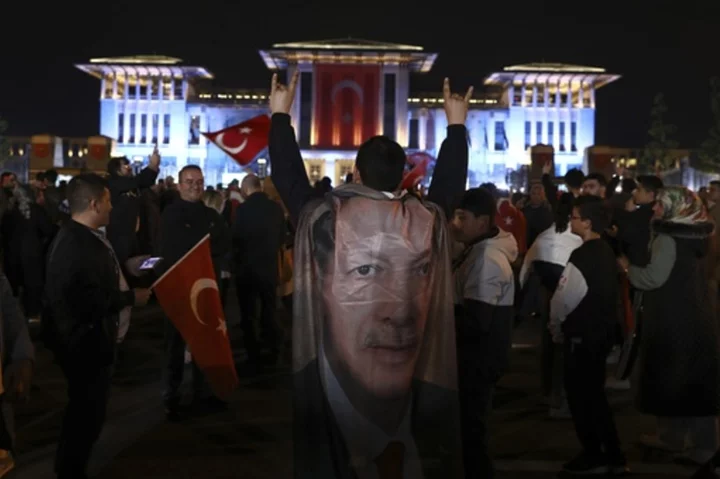Uruguay, grappling with a multi-year drought and high temperatures, is running dry.
The situation has become so bad that residents are being forced to drink salty tap water and workers are drilling wells in the center of the capital to reach the water beneath the ground. On Monday, President Luis Lacalle Pou declared a "water emergency for the metropolitan area."
The situation is sending shockwaves through this relatively wealthy South American nation, which has long defined access to water as a human right. It's also a warning sign for countries' vulnerability in the face of drought, which is set to become more frequent and intense as climate change accelerates.
The impacts in Uruguay are stark. Canelón Grande, a vital reservoir that normally provides water to more than a million people in the country's capital Montevideo has been reduced to a muddy field that locals are now able to cross on foot.
Another, the Paso Severino, which normally serves 60% of the country's population with fresh water, has seen the largest decrease in water levels on record. Water levels could be depleted completely in early July, according to local media reports.
In response, authorities have been forced to take a series of drastic measures as shortages bite.
Salt in the drinking water
Montevideo's tap water is basically undrinkable, said Carlos Santos, a member of the National Commission for the Defense of Water and Life (CNDAV) and a lecturer in anthropology at the University of the Republic in Uruguay.
"It's unbearable because of the saltiness," he told CNN. "Even pets avoid it."
For weeks, the public water utility, OSE, has been mixing salty water from the Río de la Plata estuary with fresh water from the Paso Severino reservoir to stretch supplies, after applying for an exemption to normal rules on salinity in drinking water.
As well as tasting salty, Uruguayan officials say the tap water also has a high level of chlorides, sodium, and trihalomethanes.
There is no health risk for most people, the minister of public health, Karina Rando said, in a May press conference, but she advised those with certain health conditions, including hypertension and kidney disease, as well as those who are pregnant, to limit or even avoid tap water completely.
The Ministry of Public Health has also advised people not to add salt to their children's food and to use bottled water for making infant formula.
Lacalle Pou said on Monday that "the water supply is guaranteed" but that levels of chloride and sodium in the water will "surely rise" which, according to sanitary criteria, means it will no longer be considered drinkable.
Sales of bottled water have skyrocketed in Montevideo and the neighboring Canelones department, recording a 224% increase for the month of May compared to the same period last year, according to a report from research firm Scanntech Uruguay.
This has left retail groups struggling to keep up with demand, and caused a spike in the amount of plastic waste.
But many residents in Montevideo and the surrounding area can't afford to buy bottled water, and have been forced to keep drinking from the taps, Santos said.
To try to alleviate some of the financial pressure, the government has introduced tax exemptions for bottled water as part of its water emergency measures.
'Claiming a basic right'
The situation is shocking for residents of one of South America's wealthiest countries and one which has a special relationship with water.
Uruguay says it was the first country in the world to enshrine access to water as a fundamental right in a 2004 constitutional amendment. The amendment, which gained support from across the political spectrum, was approved by more than 60% of voters in a referendum.
Water shortages have mobilized people in the country in a way that's new, Santos said. The capital has seen numerous street protests.
"There is a key thing that Uruguayans really feel and that's a connection with water," said Santos. "The anger that people are showing right now demonstrates that. It's not about rejecting this government, but rather claiming a basic right."
For its part, the government has said it has been taking steps to tackle the problem.
On Monday, Lacalle Pou announced the construction of a dam and a new water delivery system on the San José river, which will provide an alternative water source once construction is completed in 30 days.
People have been asked not to wash their cars or water their gardens, and tanker trucks have been pressed into service to deliver water to key institutions such as hospitals.
The search for water has even moved to the center of Montevideo, where workers have dug wells in the Parque Batlle, nicknamed the "lungs of the city," to find alternative sources of water, according to local media reports.
'We needed to be better prepared'
But some accuse the government of not doing enough. There are longstanding issues with water management in Uruguay, Santos said. "The drought is a problem that is making the situation worse, but there is a historical issue with the irrational use of water which has led us here," he said.
Daniel Panario, director of the Institute of Ecology and Environmental Science at the University of the Republic, told CNN that the government is only now implementing measures suggested by scientists in February.
"We needed to be better prepared for a climate that is increasingly unpredictable," he said.
Panario recounted a conversation with a farmer who told him that it rains "worse" than before, rather than more or less. "It rains in a more concentrated way... it causes floods, and then there are long periods of drought," he said.
Neither the president's office nor OSE have responded to CNN's requests for comment.
In May, Lacalle Pou told reporters that "the moment is complex, we must accept it and we assume the responsibility," but rejected claims that his government hadn't done enough to deal with the crisis.
Uruguay is not the only country in Latin America suffering drought. Neighboring Argentina is grappling with its worst drought in decades, with severe impacts on farming.
While scientists found that the main cause of the drought in Uruguay and Argentina was not the climate crisis, they said that climate change fueled extreme heat has worsened the impacts.
"Climate change is definitely playing a role in the high temperatures that Argentina and other countries in the region are currently experiencing," Friederike Otto, climate scientist and co-lead of the World Weather Attribution initiative, said in a statement.
Miguel Doria, a United Nations Educational, Scientific and Cultural Organization (UNESCO) hydrologist for Latin America and the Caribbean, based in Montevideo, said that the country needs to change its relationship with water.
Uruguay "has a cultural bond with water," said Doria, who added that there has tended to be a perception that there was no need to take care of water as it was almost infinite. "What is really needed is a cultural change," he said. "This is an opportunity for change, for adaptation."
Gerardo Amarilla, undersecretary at Uruguay's Ministry of the Environment, told a United Nations water forum on June 9 that the country needs to value water as a resource and recognize that we live in a world with a changing climate.
In addition to shifting perceptions, Doria said that Uruguay could increase the amount of available water by building new infrastructure such as dams, and updating aging water delivery systems to improve efficiency. It could also reduce demand by promoting water reuse and new habits, he said.
For now, residents of Montevideo don't expect much relief soon; the drought looks like it's here to stay.
"We all hope it will rain very soon," Doria said.

